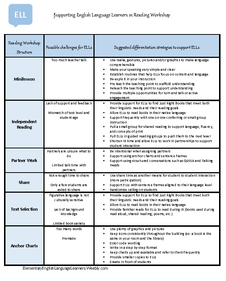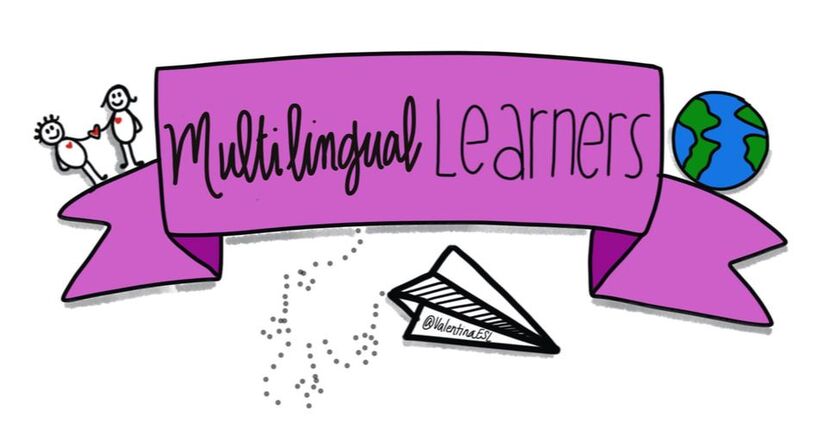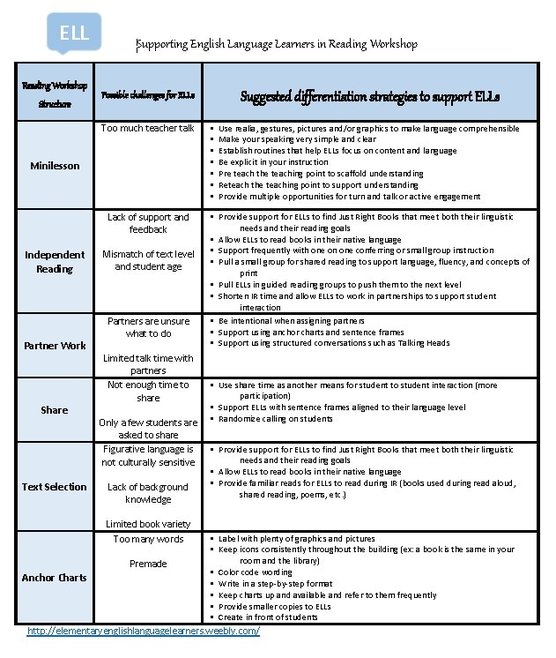
A workshop setting is very conducive to differentiation. But how are we ensuring that our ELLs are not being forgotten? How are we making sure that the workshop setting is meeting the needs of our ELLs and pushing them forward in language AND literacy?

First and foremost, as teachers we have to remember that when we work with students who are learning English as a second language, we are not only teaching them to read and write, we are simultaneously teaching them the English language, language proficiency. It is important to keep a pulse of the students' levels in listening, speaking, reading and writing in English.
Being aware that some students come from countries where letters and symbols are different from ours is important too. Teaching ELLs how to decode letters will help empower them to read. Being explicit about letter sounds, capitals and lower case letter, and punctuation can be taught in small groups or during individual reading conferences with ELLs. Nevertheless, these are important lessons that our ELLs might have missed depending on when they came to the US. Often we ask our students to "sound it out...does it sound like it makes sense or sound correct?" Well, for an English language learner that type of question is difficult to answer. Some haven't heard enough examples of the English language to know if it sounds correct. For many, the classroom is the only place where they experience the English language. With ELLs, explicit instruction and modeling goes a long way. If we want our students be excel in academics, we have to help them excel in language at the same time. Our ELLs need multiple opportunities to listen, speak, read and write during the day and this includes the workshop time. Recently while at an assessment training, the presenter discussed accommodations. I loved how she phrased it. She said that accommodations do not give ELLs an advantage. Accommodations level the playing field. I look at it this way...if a little girl can't reach the water fountain, what would we do? Would we let the child go without water until she grows tall enough to reach it herself even though she needs the water? Would we go get the maintenance crew to LOWER the fountain? NO! Of course not! The child deserves and needs the water and we will not lower the standards for her to reach it. We will give her a scaffold and little by little pull it back. The scaffold might be a stepping stool or some other type of device to allow her equal access to the water. She will get the same water that everyone else gets. Level the playing field. See the document below for ideas on how to level the playing field for ELLs during workshop. Feel free to email me or reach out to me on Twitter and I will send you more information on this document.
3/5/2017 07:12:45 am
Thank you for sharing your differentiation strategies with us within the RW lesson framework template! Your post is a great reminder of how well the RW model allows for ongoing differentiation and scaffolding!
Dora
10/5/2017 05:13:41 pm
Valentina, Comments are closed.
|
Categories
All
|
||||||


 RSS Feed
RSS Feed
